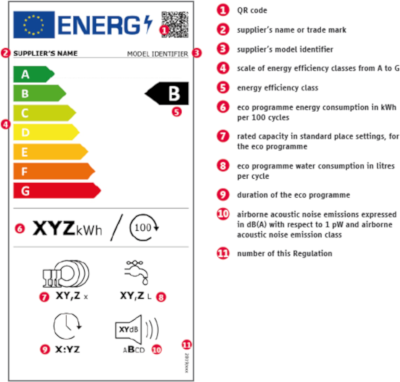
A New Energy Label For Home Appliances
Since the current energy label was introduced, there have been huge improvements in energy saving technology. This has resulted in nearly all products being concentrated at the top of the scale, so the time has come to recalibrate the label.
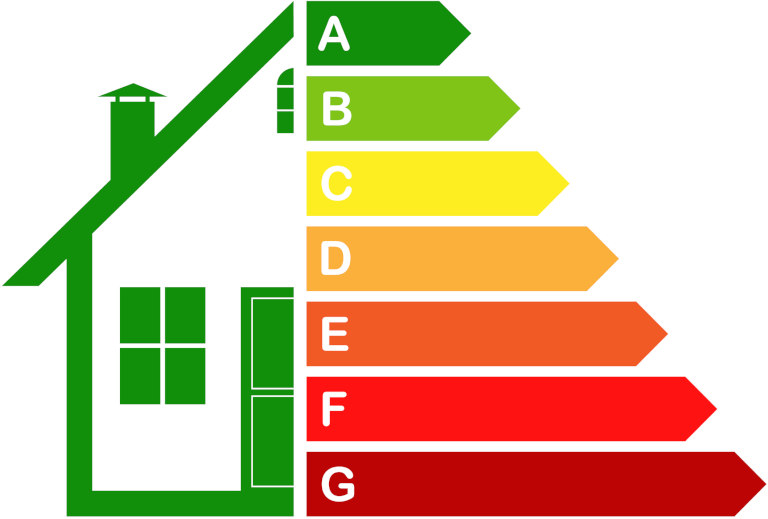
Why The New Label?
The UK is introducing a new energy label in 2020. This will spread energy performance over a much wider scale, making it easier for consumers to compare products. It will also set new standards for energy saving in appliances, which will bring further savings for consumers as well as help meet environmental commitments made by manufacturers and Government.
When exactly is this happening?
Although the official switchover date is, 1st March 2021, there is a transition period where both labels will be supplied. This ensures that whenever the product is purchased, you have the right label which meets the regulations. Please be assured that whilst both labels are different, they are both applicable for this product.
What's New?
An example of the current energy label is shown on the left, an example of the new energy label is shown on the right. The key changes across all product categories are:
- QR Code - Helping you receive product information quickly
- New Energy Classes - A simpler A-G classification system
- Simpler Consumption Usage - A more understandable measurement of energy consumption.
In addition, there are category specific changes shown below.
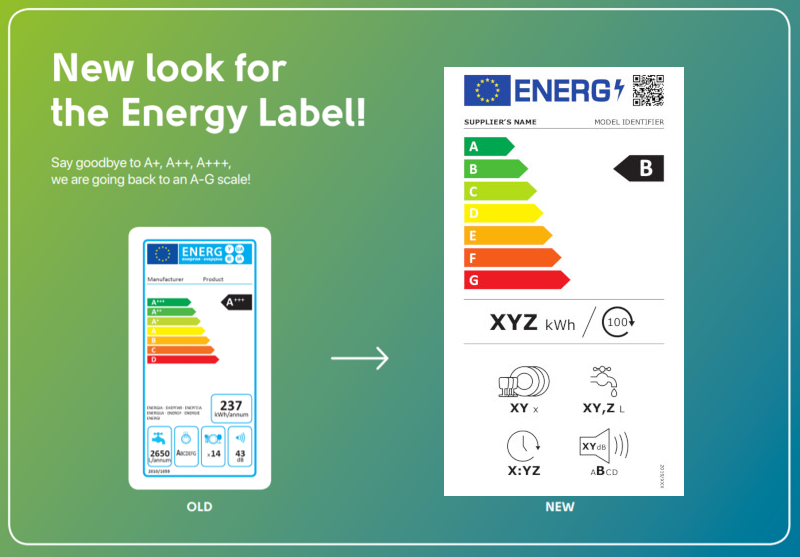
Fridges & Freezers
Half of domestic refrigeration appliances placed on the market in 2014 could claim one of the two top classes (A+++ or A++) on the label - a clear sign that the 10-year-old regulations in place are in urgent need of updating.
How the changes will help?
- Fairer Rules - Will be enforced through more realistic calculations.
- Further Energy Saving - 10 TWh of electricity savings per year by 2030.
- Household Savings - European housholds will avoid an average of €100 of electricity expenditure over the lifetime of a new fridge or freezer.
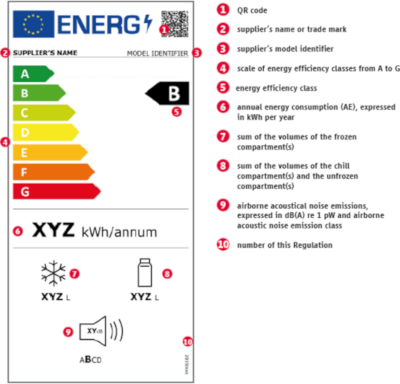
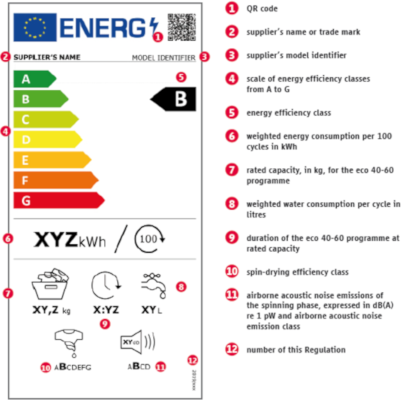
Washing Machines & Washer Dryers
More than 55% of washing machines placed on the EU market are ranked A+++ on the label, hindering product differentiation.
How the changes will help?
- Fairer Rules - Will be enforced through more realistic calculations.
- Water Saving - 711 million m3 of water saved by 2030
- Energy Saving - 2.5 TWh of electricity savings per year by 2030.
- Household Savings - European housholds will avoid an average of €130 of electricity expenditure over the lifetime of their new washing machine.
Dishwashers
More than 60% of dishwashers placed on the EU market in 2014 ranked A+++ and A++ on the label, hindering product differentiation.
How the changes will help?
- Fairer Rules - Will be enforced through more realistic calculations.
- Water Saving - 16 million m3 of water saved by 2030
- Energy Saving - 2.1 TWh of electricity savings per year by 2030.
- Household Savings - European housholds will avoid an average of €60 of electricity expenditure over the lifetime of their new dishwasher.
